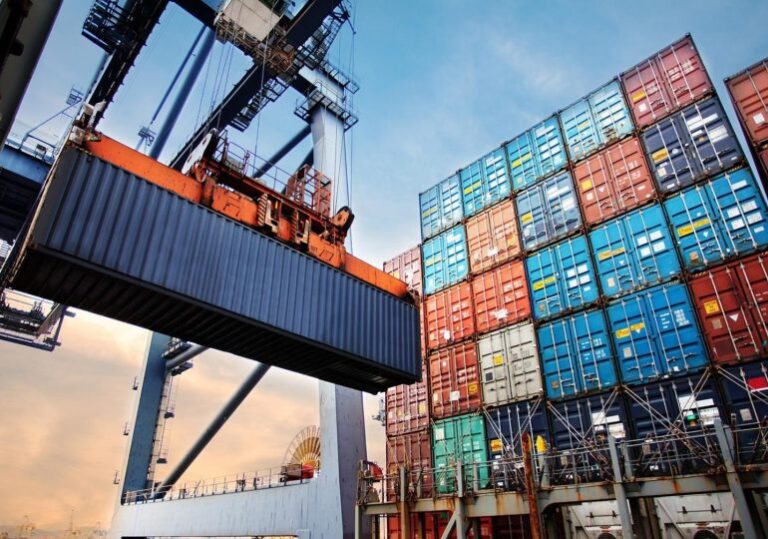The governor of the Dominican Central Bank (BCRD), Héctor Valdez Albizu, received a mission of the International Monetary Fund (IMF) headed by Emilio Fernández-Corugedo, in compliance with Article IV regarding the annual consultations that this international organization carries out with its member countries, to take stock of the Dominican economy’s performance during 2022, and the outlook for the current year.
During the meeting, Valdez Albizu informed the mission about the country’s economic indicators highlighting that international reserves reached 16,448.6 million dollars as of May 5 of this year, representing 13.4% of gross domestic product (GDP) and 6.2 months of imports, both above IMF metrics.
Valdez Albizu explained that the greater flow of foreign currency has allowed the country to have high volumes of reserves. The total volume of foreign exchange in 2022 was $39 billion.
Detailing the foreign currency revenue, he explained to the IMF team that tourism generated almost 8,500 million dollars during the past year and there was a growth in total exports of 10.5% year-on-year, influenced by an expansion of 9.1% in those of free zones.
In turn, he stressed that the flow of remittances exceeded 9,800 million dollars and foreign direct investment (FDI) reached 4,000 million dollars.
The governor indicated that around 1,000 million dollars in new FDI flows were received, pointing out that it would again exceed 4,000 million at the end of this year.
As for imports, he said the growth was moderated during the past twelve-month period, mainly in response to the decrease in international fuel prices.
Economic growth in DR
One of the most relevant reports was the economic performance, which remained energetic during 2022, growing 4.9%, driven by the strength of domestic demand and foreign exchange generating activities.
The governor added that the preliminary results of the first quarter of 2023 show that the monthly indicator of economic activity (IMAE) had an average year-on-year expansion of 1.4%, consistent with the variation of 0.4% in January, 1.8% in February and 2.1% in March 2023.
“This behavior in the first three months of the year is in line with expectations, reflecting the moderation of domestic demand, and the deterioration of the international environment in a context of greater uncertainty,” Valdez Albizu explained to the mission.
Regarding the labor market, the BCRD governor stated that “employment levels prior to the pandemic have been exceeded, reaching a historical maximum of 4.8 million employed. The open unemployment rate went down, going from 8.0% in the first quarter of 2021 to 4.8% at the end of 2022, that is, by 3.2 percentage points.
As for tourism, Valdez Albizu stressed that the activity with the greatest impact on gross domestic product (GDP) in 2022 was hotels, bars, and restaurants, registering a year-on-year expansion of 24.0% in its real added value.
The governor highlighted that the prospects for this sector remain favorable, so that “if this trend continues, it is estimated that 7.8 million non-resident air passengers will by the end of 2023”.
Controlling Inflation
The governor explained that, thanks to the monetary restriction measures in place since November 2021, inflation has been reduced from a maximum of 9.64% in April 2022 to 5.15% in April 2023, with a convergence to the target range of 4% ± 1% expected in this month of May.
The return of inflation to the target range would provide the necessary space for the BCRD to weigh the right moment to adopt measures that contribute to economic growth gradually returning to its potential while preserving macroeconomic stability, he said.
For his part, IMF Mission Chief, Emilio Fernández-Corugedo, stressed at the meeting that, over the last two decades in Latin America, the Dominican economy has been the most energetic and resilient, thanks to the combination of good monetary policies, a robust financial system, and solid macroeconomic fundamentals.
Initiating the cycle of meetings the IMF will hold with various Dominican institutions, the head of the Mission pointed out that the current international panorama with external shocks is very complex, and affects most economies, causing a slowdown in global economic activity.
However, he explained that the Dominican economy continues to show a positive outlook, being proactive in the regulation and supervision of the financial system and showing a good business climate.
The IMF mission also included Pamela Beatriz Madrid, Dirk Jan Grolleman, Manuel Rosales Torres, Metodij Hadzi-Vaskov, and Frank Fuentes, representative of the Dominican Republic to the IMF. The governor was accompanied by the vice governor, Clarissa de la Rocha de Torres; manager, Ervin Novas Bello; assistant general manager, Frank Montaño; assistant managers, Joel Tejeda, Ramón González and Máximo Rodríguez; economic advisor of the Governor’s Office, Julio Andújar; and departmental directors Joel González, Brenda Villanueva, José Perdomo, Elina Rosario and Carlos Delgado.
Source:
Diario Libre

